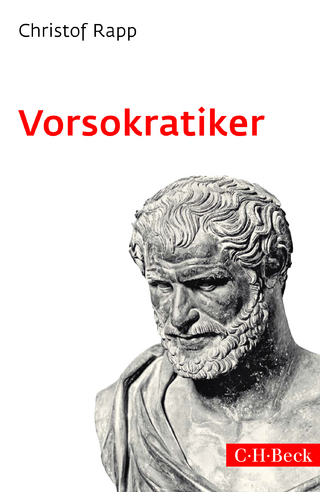
Socrates Dissatisfied
An Analysis of Plato's Crito
Seiten
1998
Oxford University Press Inc (Verlag)
978-0-19-511684-7 (ISBN)
Oxford University Press Inc (Verlag)
978-0-19-511684-7 (ISBN)
Contending that Plato's "Crito" does not show an allegiance between Socrates and the state that condemned him, Weiss argues that he considers the laws of the state to be more concerned with creating deference than justice - that, by submitting to his judgement, Socrates acts from a personal sense of justice rather than a set of imposed rules.
Roslyn Weiss contends that, contrary to prevailing notions, Plato's Crito does not show an allegiance between Socrates and the state that condemned him. Denying that the speech of the Laws represents the views of Socrates, Weiss deftly brings to light numerous indications that Socrates provides to the attentive reader that he and the Laws are not partners but antagonists in the argument and that he is singularly unimpressed by the case against escaping prison presented by the Laws. Weiss's greatest innovation is her contention that the Laws are very much like the judges who preside at Socrates' trial--interested not in justice and truth but in being shown deference and submission. If Weiss's argument is correct, then the standard conception of the history of political thought is in error--political philosophy begins not with the primacy of the state over the citizen but with the affirmation of the individual's duty to act in accordance with his own careful determination of what justice demands.
Roslyn Weiss contends that, contrary to prevailing notions, Plato's Crito does not show an allegiance between Socrates and the state that condemned him. Denying that the speech of the Laws represents the views of Socrates, Weiss deftly brings to light numerous indications that Socrates provides to the attentive reader that he and the Laws are not partners but antagonists in the argument and that he is singularly unimpressed by the case against escaping prison presented by the Laws. Weiss's greatest innovation is her contention that the Laws are very much like the judges who preside at Socrates' trial--interested not in justice and truth but in being shown deference and submission. If Weiss's argument is correct, then the standard conception of the history of political thought is in error--political philosophy begins not with the primacy of the state over the citizen but with the affirmation of the individual's duty to act in accordance with his own careful determination of what justice demands.
| Erscheint lt. Verlag | 19.3.1998 |
|---|---|
| Verlagsort | New York |
| Sprache | englisch |
| Maße | 157 x 235 mm |
| Gewicht | 499 g |
| Themenwelt | Geisteswissenschaften ► Philosophie ► Philosophie Altertum / Antike |
| Geisteswissenschaften ► Sprach- / Literaturwissenschaft ► Anglistik / Amerikanistik | |
| Geisteswissenschaften ► Sprach- / Literaturwissenschaft ► Literaturwissenschaft | |
| Sozialwissenschaften ► Politik / Verwaltung ► Politische Theorie | |
| ISBN-10 | 0-19-511684-4 / 0195116844 |
| ISBN-13 | 978-0-19-511684-7 / 9780195116847 |
| Zustand | Neuware |
| Informationen gemäß Produktsicherheitsverordnung (GPSR) | |
| Haben Sie eine Frage zum Produkt? |
Mehr entdecken
aus dem Bereich
aus dem Bereich
mit Sokrates, Seneca, Platon & Co. im Gespräch
Buch | Hardcover (2023)
FinanzBuch Verlag
18,00 €


